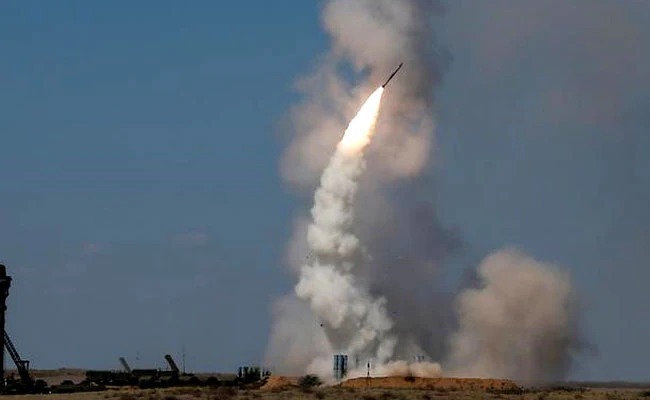| Translate This News In |
|---|
The nightmare of nuclear warfare has returned to the forefront of public consciousness following Russia’s invasion of Ukraine, highlighting the deterioration of the Cold War global security architecture.
The military stalemate has raised fears that Russia will resort to its nuclear arsenal to achieve a breakthrough.
Russia, along with the United Kingdom, China, France, and the United States, are the five recognised nuclear weapons states and permanent members of the United Nations Security Council.
Former NATO deputy secretary-general Camille Grand remarked, “It’s the first time a nuclear power has utilised its status to wage a conventional war beneath the shadow cast by nuclear weapons.
The moral and strategic nuclear “taboo” that developed after the US bombed Nagasaki and Hiroshima at the close of World War II in 1945 is still in effect as of right now.
But the level of rhetoric has greatly increased.
Since the invasion of Ukraine, nuclear attacks on Western cities like Paris or New York have been frequently discussed on Russian TV broadcasts.
An anonymous former Russian official issued a warning that President Vladimir Putin would “push the button” if he believed that Russia’s existence was in danger.
The year’s events have been a painful wake-up call for Europe, which has spent decades enjoying the so-called “peace dividend” from the Cold War and living in a condition of relative ease with regard to nuclear security.
In October, US President Joe Biden issued a warning about a potential “Armageddon” looming over the planet.
Disarmament is “in ruins”
Thomas Schelling, a Nobel Prize-winning economist and strategist, stated in 2007. “The most remarkable event of the past half century is one that did not occur.”
However, the system that prevented world leaders from pressing the button after 1945 had already started to fall apart before Putin gave the order to invade.
The crucial Anti-Ballistic Missile Treaty that the United States and the Soviet Union had signed in 1972 and which had preserved the nuclear balance of power was terminated by the United States in 2002.
In the years that followed, other significant agreements were abandoned, including the Intermediate-Range Nuclear Forces (INF) Treaty, which Washington abandoned in 2019 while blaming Russia for noncompliance.
Extremely dangerous crisis
Along with the five recognised nations, India, North Korea, and Pakistan also possess nuclear weapons, and Israel is commonly believed to possess such weapons despite never formally acknowledging it.
The pursuit of a self-sufficient nuclear deterrent by North Korea, which started when it left the Non-Proliferation Treaty (NPT) in 2003, has seen a strong increase in missile testing this year.
A seventh nuclear weapons test by Pyongyang is anticipated, according to Washington, Seoul, and Tokyo.
The isolated dictatorship revealed a new nuclear doctrine in September, making it very apparent that it would never give up the bombs and that they could be used in a preemptive strike.
A scholar at the Carnegie Endowment for International Peace, Chung Min Lee, recently warned a conference in Paris that there would be a “very grave crisis” in Asia.
Countries in the region without nuclear weapons worry that the security afforded by the US nuclear shield is eroding.
If extended deterrence were a water balloon, he said, “now the water balloon has some key breaches and water is seeping out.”
China’s nuclear arsenal is also expanding, with estimates from the Pentagon putting it at 1,000 warheads within a decade, or about equal to US bombs.
worry about proliferation
A united declaration signed by 191 nations was prevented by Russia at the last minute during a UN session on the NPT in August.
According to a French ambassador, Moscow has been using “extraordinarily provocative nuclear rhetoric” and has “disdain” for the deal.
Russia’s attitude, which had previously supported the NPT, “broke,” the diplomat continued.
According to the diplomat, China was “quite outspoken” and offered a “pretty nasty criticism” of the US-UK-Australia AUKUS Pacific alliance, which will send nuclear-powered submarines to Canberra.
Beijing argued that the alliance posed a threat to further nuclear proliferation while failing to “remove reservations about the opaqueness of its own nuclear doctrine or the rate at which its arsenal is increasing.”
Fears of nuclear proliferation have grown as a result of the invasion of Ukraine, a country that voluntarily gave up its nuclear weapons.
According to Jean-Louis Lozier, a former commander of France’s nuclear weapons, “countries like Japan or South Korea might reasonably ask if” they need their own bomb.
The same is true of Saudi Arabia, Turkey, and Egypt in the Middle East, he continued.


















